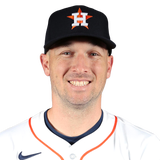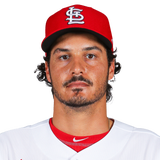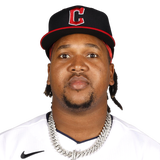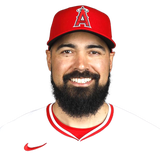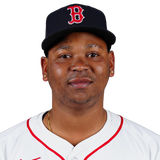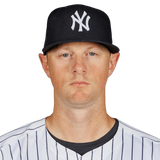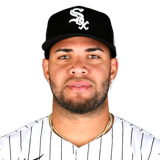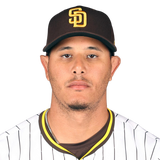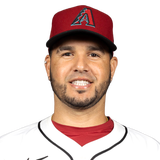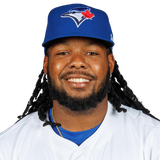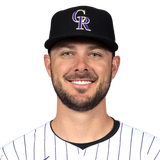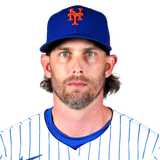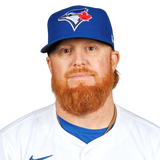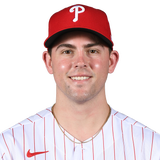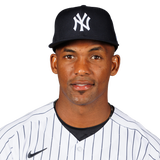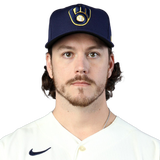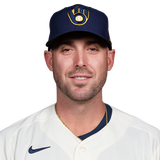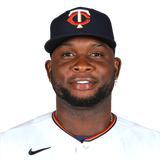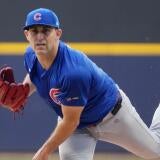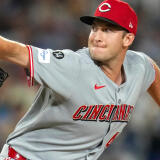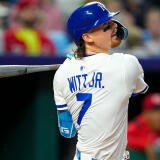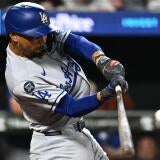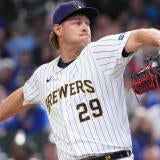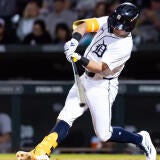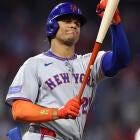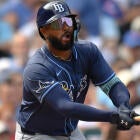2020 Fantasy Baseball Third Base Preview: Sleepers, breakouts, busts, top prospects, rankings and more
Third base has something for everyone in Fantasy, and the talent is so deep you can go elite or wait for value and upside.
In the classical positional hierarchy for both Fantasy and real life, first base was always where the elite offensive bats wound up, but that isn't necessarily the case these days. In fact, at least right now in Fantasy, third base might just be the cream of the crop. Four of the top-10 players in Fantasy in 2019 are third base eligible for 2020, with a whopping 19 of the top 100 coming from the position.
If you pick in the second half of the first round, you could build your offense around Alex Bregman and Nolan Arenado, or you could take an ace pitcher and settle for Anthony Rendon, Jose Ramirez or Rafael Devers. Any one of those six could finish as a top-five hitter for 2020 and you wouldn't bat an eye.
But you don't have to make one of those players the centerpiece to be solid at third base. In the fifth-round range you've got elite potential in Kris Bryant, Manny Machado and Vladimir Guerrero; around 100 overall, Matt Chapman, Eduardo Escobar, Josh Donaldson and Mike Moustakas have all proven to be strong hitters with upside; and even outside of the top 150, you've got interesting young guys like Scott Kingery, Hunter Dozier, Miguel Andujar or Austin Riley with the potential to turn into difference-makers.
You probably need to get high-level production from third base to keep up with the competition in your league, but that doesn't necessarily mean you have to pay full freight for it. This is one position where you've got the luxury to wait if that's the way the draft falls.
Third Base Preview
The last time Bregman had more strikeouts than walks in a month was June of 2018. The last time he had an OPS below .854 for a month was April of 2018. If he still stole bases, we'd be talking about Bregman as a contender for the No. 1 pick. And no, I'm not worried about the Astros no longer stealing signs.
| ||||||||||||
There was some concern early in the offseason that the Rockies would trade Arenado, and then there was some concern MLB would play their whole schedule at spring training sites. However, both concerns have past, and Arenado should remain the four-category stud he's been for years.
| ||||||||||||
Whatever was wrong with Ramirez, he fixed it in the second half, hitting .321/.356/.722 from July 1 on. He seemed to be trying to go the other way more often earlier in the season to beat the shift, and it robbed him of the power that fueled his breakout in recent years. If the adjustments he made in the second half are for real, Ramirez is going to be a steal in the late second as a five-category stud.
| ||||||||||||
In a H2H points league, Rendon is right there with the true elites at this position — and truthfully, he isn't exactly lagging behind in Roto. Hitting either in front of or behind Mike Trout should help him sustain elite run production numbers, and if his power breakout last year was real, he's a first-round caliber hitter.
| ||||||||||||
Sometimes, it pays to bet on talent. There wasn't much reason to think a breakout was coming from Devers, except for the fact that he was a 22-year-old former elite prospect. Devers became an even more aggressive swinger in 2019, and he tightened up his launch angle, hitting fewer weak dribblers and pop ups, and it allowed him to become one of the league's best hitters.
| ||||||||||||
A rare hitter who got better upon leaving Coors Field, LeMahieu's all-fields approach played up in Yankee Stadium. I'm a bit wary of buying in on such a massive breakout season, but the peripherals mostly back it up.
| ||||||||||||
Moncada has always had elite tools, and he figured out how to put them into use in games in 2019. He cut his strikeout rate and improved against left-handed pitching, and if he can hang on to those gains, he'll continue to be a strong Fantasy option — even if he'll likely never hit .300 again. One big question remaining is whether he'll ever turn his speed — 72nd percentile in sprint speed, per Statcast — into stolen bases.
| ||||||||||||
Machado may never return to the truly elite tier outside of Camden Yards, but he's better than his first year in San Diego made him appear. He still has elite exit velocity and hard-hit rates, so an average more in the .270-.280 range makes his profile look a lot more promising.
| ||||||||||||
Selling out for power isn't always a bad thing. Suarez probably won't hit 49 homers again, but he's become a legitimate plus power hitter thanks to his combination of above-average exit-velocity and plenty of balls in the air. There are reasons to be concerned — unsustainable HR/FB rate, career-high infield flyball rate — but you're not going to have to pay a 49-homer cost, either.
| ||||||||||||
There's no doubting the talent, but Vlad Jr. needs to improve quite a bit to justify his 2020 ADP. I'm not betting against it, necessarily, but he's one of the riskiest early-round players on the board.
| ||||||||||||
Bryant isn't the elite bat he once was, but he had a nice bounceback in 2019. Those hoping for even better in 2020 will be concerned by his well below average exit velocity and hard-hit rate.
| ||||||||||||
McNeil is a bit of a throwback as a contact-oriented line drive hitter, but he has enough pop to hit 23 homers in fewer than 600 plate appearances in 2019. Expect more consistent playing time and one of the best bets to hit .300.
| ||||||||||||
Don't forget about ...
All Turner does when he's healthy is hit. You'll never get gaudy counting stats because Turner just doesn't play as much as you'd like to see, but he's one of the most reliable source of average in the game and he'll come at a discount at this point.
| ||||||||||||||||||||||
There's still a bit too much swing-and-miss in his game, but Kingery's combination of pop, speed and versatility make him a potentially very useful Fantasy option. And if he shaves a few ticks off that strikeout rate, a significant breakout could be coming.
| ||||||||||||||||||||||
Unfortunately, Andujar is coming back from a serious shoulder injury and we can't quite know what he's going to look like when he gets back. Add in concerns about his playing time and it makes sense his ADP is sinking, but if he's right, he's a high-average player with 30-homer potential in a great lineup.
| ||||||||||||||||||||||
Third Base Sleeper, Breakout & Bust
Anderson is easy to forget at a stacked position like third base, but he's closer to being a starting-caliber option even in a 12-team league than you might think. His 155-game pace in 2019 would have put him at 25 homers, 81 RBI, 70 runs and six steals, so if all he does is repeat that with a better lineup around him, 25-homers, 90 RBI and 80 runs will play — but there's upside beyond that. He increased his launch angle in 2019, but saw his strikeout rate rise along with it. If he can get his strikeout rate back to 2018 levels while maintaining the increase hard-hit and barrel rates, it's not hard to see a 30-homer pace with a .275-.280 average here. There isn't elite upside, but Anderson could settle in as a decent five-category option at third base.
| ||||||||||||||||||||||
Not all swing changes are made equally. Shaw tweaked his swing last offseason and then ditched the change midway through spring training, but the damage was done: Shaw had 25 strikeouts and no walks in 18 spring games, and then struck out in one-third of his plate appearances en route to his worst season ever, including two trips back to Triple-A. Shaw told reporters he is back to the swing that saw him hit 63 homers between 2017 and 2018, and should get plenty of playing time in Toronto. There's no guarantee he gets back to his pre-2019 levels, but we've seen strong production from him before, and with an ADP well north of 300 right now, there's no risk in trying to find out if he can bounce back.
| ||||||||||||||||||||||
There really isn't that much difference between Sano and Joey Gallo, but Gallo will likely come off the board five rounds earlier on Draft Day. Sure, Sano has had more issues staying healthy and doesn't provide the moderate stolen base potential Gallo does, but the profiles are strikingly similar otherwise: Big batting average downside and best-in-league power potential. Sano scuffled in 2018 but showed us his upside in 2019, clubbing his 34 homers in just 105 games. Sano could hit .200 next year, sure; he could also be the premier power hitter in baseball by the time 2021 rolls around. For an 11th or 12th round pick, you'll take that.
| ||||||||||||||||||||||
There's a chance Machado gets back to something like his formerly elite ways, but I'm not willing to pay for it at his going rate. He's hit .267/.323/.449 in 653 career games away from Camden Yards, right in line with his .261/.335/.470 line since leaving the Orioles — and also right in line with what he did in his first season in San Diego. It's a tough park to hit for power in, and Machado's swing relies on racking up home runs to sustain a plus batting average. If he's just a decent power hitter, there may not be much difference between what you could expect from Mike Moustakas and what Machado is likely to do in 2020.
| ||||||||||||||||||||||
Third Base Top Prospects
1. Alec Bohm, Phillies
Age (on opening day): 23
Where he played in 2019: low Class A, high Class A, Double-A
Minor-league stats: .305 BA (475 AB), 21 HR, 30 2B, .896 OPS, 57 BB, 73 K
The third overall pick in 2018 looked the part in his first full professional season, laying waste to the lower minors before settling in at Double-A. There's power to all fields, and the bat control is especially impressive given his 6-foot-5 frame. That awkward size makes it likely he ends up at first base, though.
2. Nolan Jones, Indians
Age (on opening day): 21
Where he played in 2019: high Class A, Double-A
Minor-league stats: .272 BA (430 AB), 15 HR, 22 2B, .851 OPS, 96 BB, 148 K
Jones' on-base skills alone are enough to earn him some prospect love, but his success will depend on him reducing the strikeouts or increasing the home runs, both of which seem possible given his plate discipline and ability to impact the ball. He's pretty far along for his age, so it stands to reason he'd be a little over matched at this stage.
3. Nolan Gorman, Cardinals
Age (on opening day): 19
Where he played in 2019: low Class A, high Class A
Minor-league stats: .248 BA (456 AB), 15 HR, 30 2B, .765 OPS, 45 BB, 152 K
Though he has a claim to being maybe the best pure power hitter in all the minors, Gorman's contact issues may become a hindrance. And though I'll reserve judgment seeing as he's still only a teenager, the fact he struggled to actualize all that power once he reached a more competitive level, homering five times over his final 73 games, is at least a little concerning.
4. Josh Jung, Rangers
Age (on opening day): 22
Where he played in 2019: Rookie, low Class A
Minor-league stats: .316 BA (174 AB), 2 HR, 14 2B, .831 OPS, 18 BB, 32 K
With a well-rounded offensive skill set highlighted by strike-zone judgment and an ability to drive the ball the opposite way, Jung finds himself in the same spot as Bohm was a year ago -- a high draft pick who underwhelmed in his taste of the lower minors but whose backers remain fully confident he has the goods to take off.
5. Jonathan India, Reds
Age (on opening day): 23
Where he played in 2019: high Class A, Double-A
Minor-league stats: .259 BA (428 AB), 11 HR, 11 SB, .767 OPS, 59 BB, 110 K
The fifth overall pick of 2018 continued his steady climb up the minor-league ladder, putting him within striking distance of the majors, but again without the sort of fireworks you might expect for a prospect of his ilk. One area where he never falls short, though, is plate discipline, which is so advanced that most evaluators remain bullish on him developing into an impact bat (though possibly at second base).
6. Isaac Paredes, Tigers
7. Bobby Dalbec, Red Sox
8. Ke'Bryan Hayes, Pirates
9. Abraham Toro-Hernandez, Astros
10. Kody Hoese, Dodgers
So which sleepers should you snatch in your draft? And which undervalued first baseman can help you win a championship? Visit SportsLine now to get rankings for every single position, all from the model that called Kenta Maeda's huge breakout last season, and find out.



